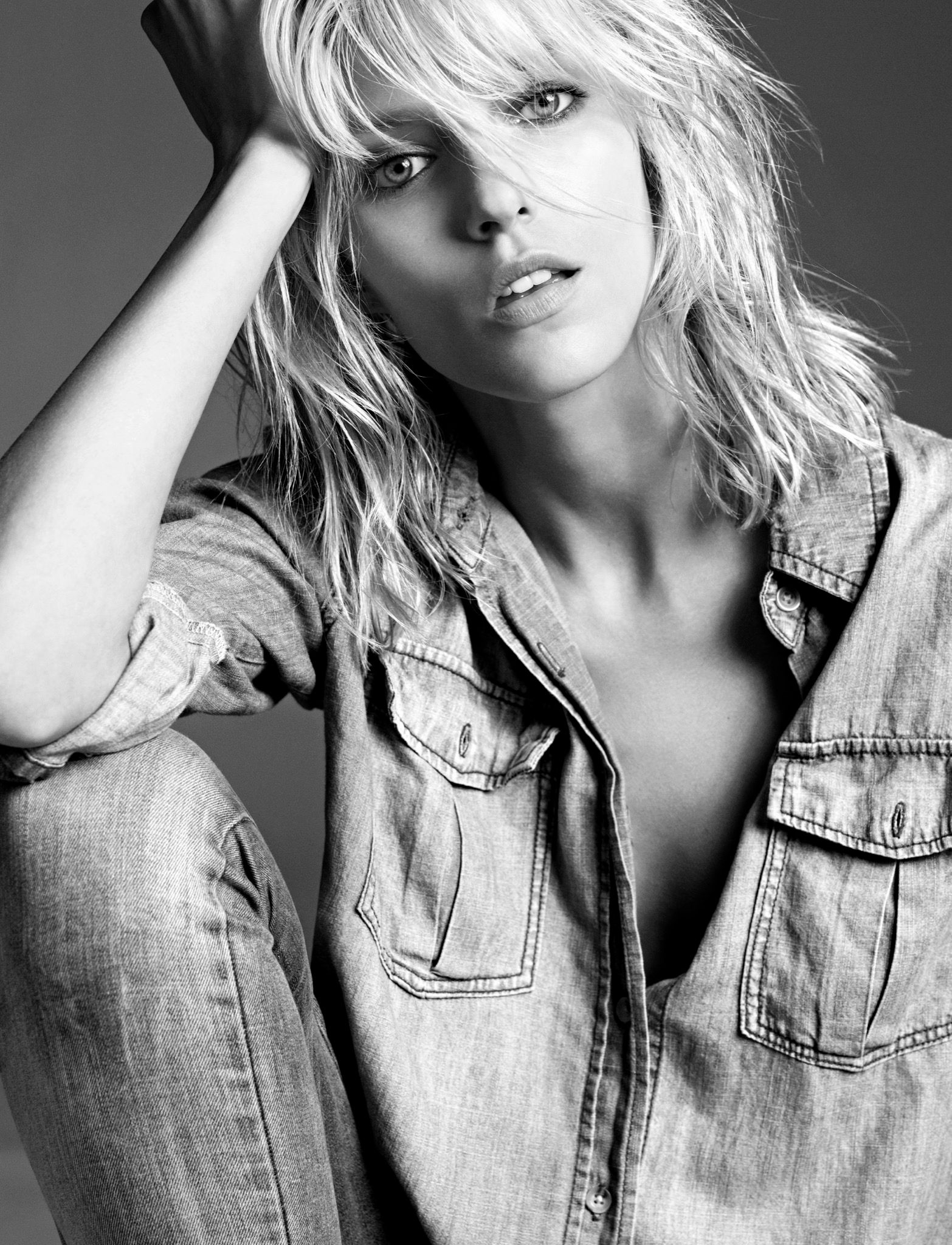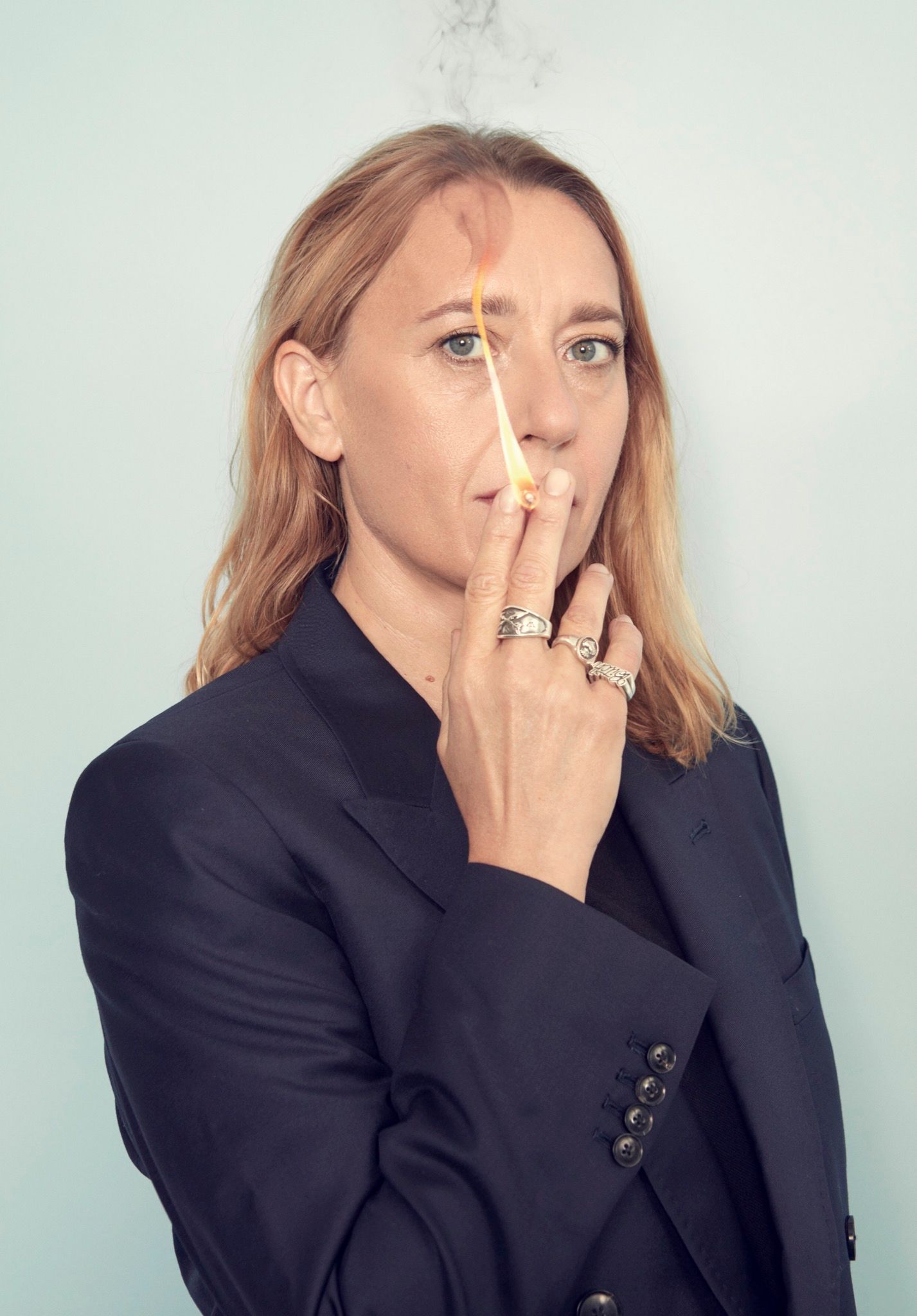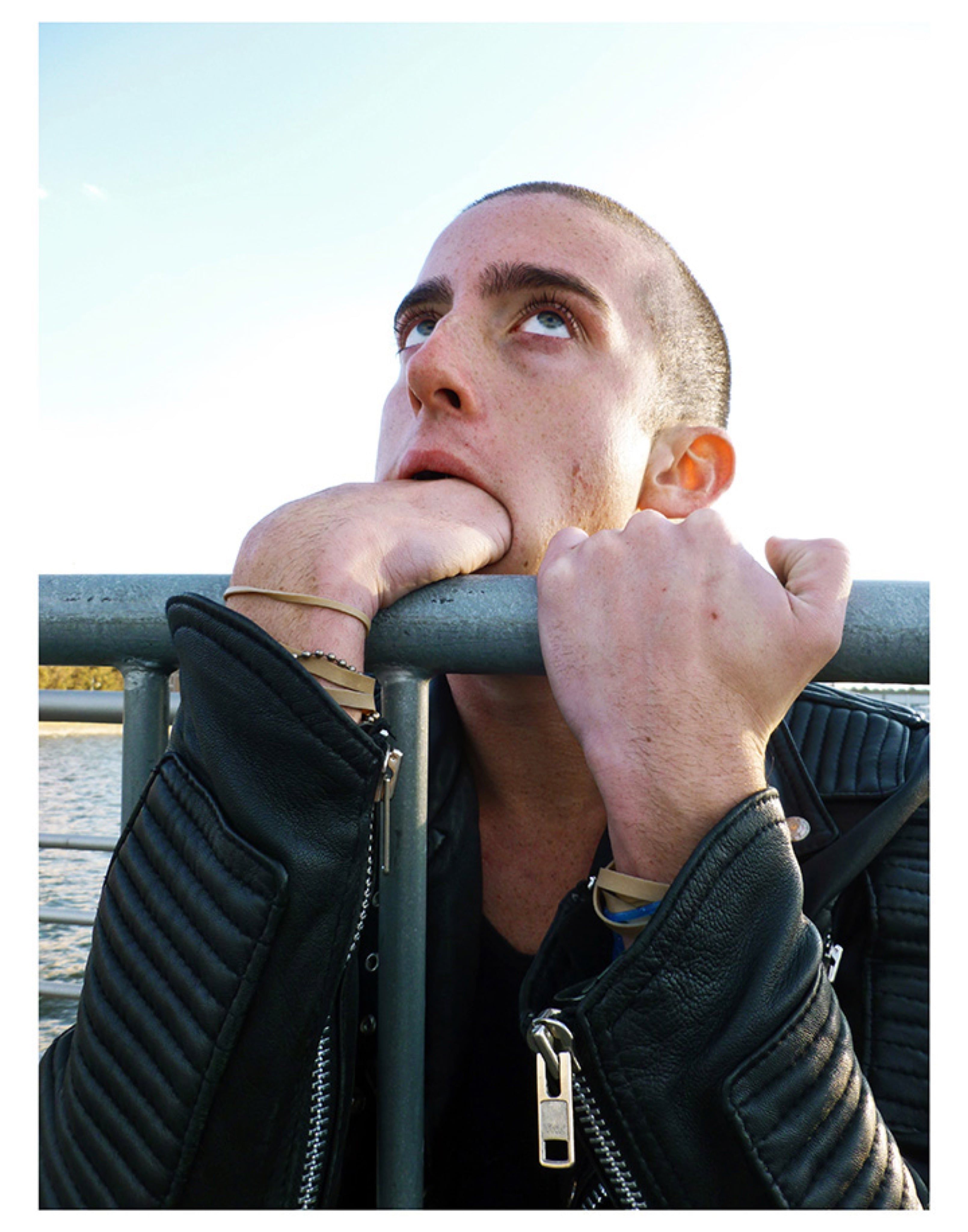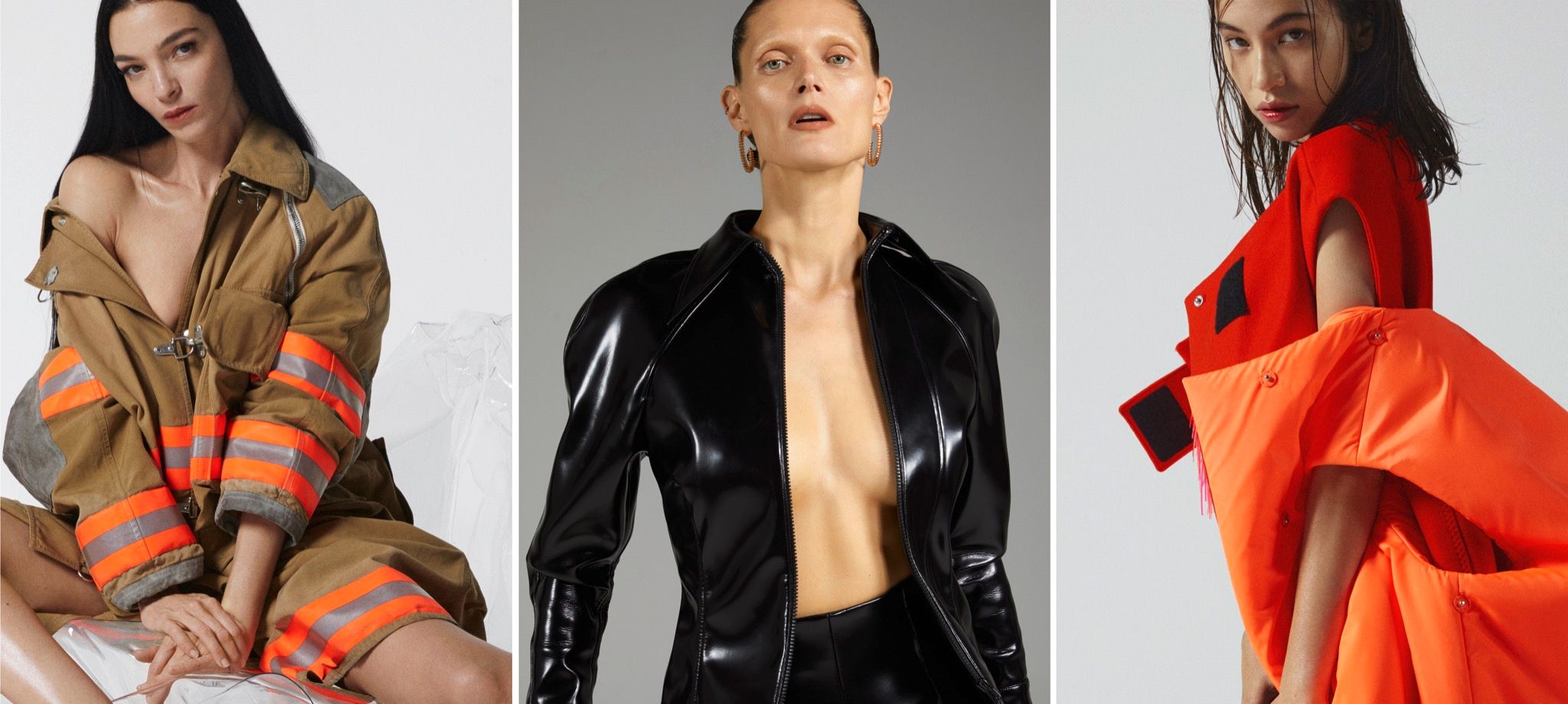In Defense of Who We Are: 032c Cover Star ANJA RUBIK Talks Activism, Public Health, and #SEXEDPL

To achieve longevity in the fashion world after a modeling career, a knack for foresight and reconversion is vital. ANJA RUBIK is a natural. In her 20 years in the game, headlining campaigns for the Chloé, Yves Saint Laurent, Gucci, and Fendi – and walking down virtually every major runway – the Polish supermodel has nonetheless made time for political, creative, and philanthropic ventures, repurposing rather than burying her modeling fame and years in front of the lens. In the past decade, Rubik has launched her own magazine and her own fragrance, but her most personal engagement has been with her work as an activist. She’s been an advocate in her home country’s enduring struggle for the protection of women’s reproductive rights, and is the creator and spokesperson for #SEXEDPL, a nationwide campaign and book making a case for sexual education in Polish schools – a topic, she argues, that is essential to the formation of young identities and psyches as it is to public health. During last Paris fashion week, just as education and health systems began to be thrown into urgent question by COVID19 shut down, the model, activist, and repeated 032c cover star – shot by Inez and Vinoodh for issue #28 and Pierre-Ange Carlotti for issue #37 – spoke to 032c about the issues that matter to her, and why they should matter to all of us.
Interview: Irina Baconsky
You are Polish, but throughout your childhood and career you’ve lived across Europe and the world. Considering recent questions about the future of the EU, what are your thoughts, concerns, or hopes regarding the evolution of Europe?
The EU is not perfect, but I do think we take for granted what it has given us. I hope we don’t jeopardize the stability and openness that it has granted us. I feel extremely fortunate not to have experienced war in my lifetime. I try to stay optimistic, however that does get difficult at times, especially when you see how easy it is to manipulate people these days with all the misleading information and fake news online.I wonder if democracy is even possible in such times of mass manipulation. I am hopeful–– you have to be–– but then I look at Brazil, the US, Hungary, or Poland, and I start asking myself if there is any integrity left in the world. It’s so much easier to divide a nation than it is to unite it.
How would you describe the situation of reproductive rights in Poland at the moment? Has the backlash to hyper-conservative policies intensified in the past couple of years?
Abortion is illegal in Poland, with a few exceptions. Four years ago the government was trying to take those “exceptions” away and pass a law that would make abortion illegal under any circumstances, even in severe situations such as pregnancies resulting from rape or pregnancies endangering the mother’s life. There was even a proposal to introduce a law demanding a thorough investigation into the conditions under which a miscarriage happened. All this resulted in mass street protests called “Black Marches,” where women and men took to the streets in solidarity. I took part in the marches and I spoke at the protests. As a result of the people’s reaction, this particular law did not pass, but the fight continues. Right now, the government is trying to prohibit sex education to anyone under the age of 18, and anyone “promoting” sex education to minors could face up to five years in prison. This is very dangerous: it would force an entire generation of our children into a life in ignorance and increased risk.
We all speak about the importance of education but we don’t speak about sex education and sex education applies to every single person on this planet and has a huge impact on our health and safety, on our self acceptance, tolerance, on our relationships, understanding our bodies, and empathy for others. We live in a very specific moment in time, we are facing challenges unlike any others in history, and we have to make decisions that will impact the very existence of our planet. But how can you make the right decisions if the society that you live in is not tolerant and equal? How can you tackle issues so much more abstract – such as climate change – when people aren’t allowed to make the most basic decisions regarding their own bodies and well-being? Sex education is key to building a healthy and safe society that can then drive positive change. Sex is part of our everyday life, and sex education needs to be as well. In Poland right now, we have propaganda that is trying to force us into feeling guilt and shame for who we are, what we feel, and who we love. There is an anti-LGBT movement happening, funded by the current government. There are billboards, posters, articles saying that the LGBT community is threatening the Polish family values.

“We live in a very specific moment in time, we are facing challenges unlike any others in history, and we have to make decisions that will impact the very existence of our planet. But how can you make the right decisions if the society that you live in is not tolerant and equal? How can you tackle issues that are much more abstract – such as climate change – when people aren’t allowed to make the most basic decisions regarding their own bodies and well-being?”
Anja Rubik
What was the response you received when you got involved in these movements?
Two years ago, when the government was trying to change the abortion law, I got involved in the protests, and I began to ask questions. I found out that in the EU, abortion was only illegal in Poland and Malta. The numbers of abortions were especially high in Eastern European countries, and those are also the countries that have no real sex education and often no knowledge or access to contraception.
We live in times of the absurd. We are bombarded with images of sex from fashion, media, music, advertising, but at the same time we are not able to speak about it in a natural and beautiful way. After looking closely at the situation, in terms of the lack of knowledge around sex education, I decided to do something about it.Poland is where I have a voice, and with that voice I felt an innate responsibility to make change.
I began with an online campaign called “sexedPL” that would live on social media, since digital media has become one of the main sources of information and education nowadays. The campaign consisted of 14 one-minute films. I approached a selected group of well recognized public figures in Poland, women and men, coming from the different fields of art, music, film, fashion, and asked them to tell a personal story connected to the subject of sex education.
The impact was bigger than I could have imagined, and we had over 10 million clicks on multiples platforms. I received hundreds of letters detailing how #SEXEDPL has touched specific lives. I have heard stories of teenagers who felt empowered to come out as gay to their parents, women who gained the courage to leave their abusive partners, and families who have started the conversation about sex at home. The day after airing the episode where we encouraged everyone to get checked for HIV, the testing labs were packed with record turn outs. There was obviously a lot of backlash from the government and the church, who opposed our initiative and were accusing me of sexualizing children and totally absurd things like promoting pedophilia. I even heard that I wanted to teach children about sex because I’m a model, implying that what I do is “the oldest profession in the world,” as they say. So there was backlash, but also a lot of positive impact, which is what motivated me to continue. In the letters I mentioned before, many wrote about misleading or false information that kids are told at school, so I decided to create something for teenagers as an answer to all the letters: a textbook that would guide them through the hardest but most important moments of growing up. I invited a group of the most dynamic educators, doctors, and activists in Poland to answer my questions around sexuality, growing up, teenage rights, and safe sex. The book has sold over 180,000 copies to date – it became a bestseller. The reaction of the government was to cross me off the official bestseller list, which is crazy. I only know about this because a document got leaked on facebook, an email they had sent out to remove me from this list.
Beyond the personal stories, what has been your approach to changing things at an institutional level? Is the goal to change what is taught at schools?
In Poland, there is a school subject that is supposed to be sex education called “Learning how to live within a family,” often taught by priests and nuns. Kids are told misleading information that, for example, masturbation is a sin and immature, that there is only one sexual orientation, that the best way of birth control is measuring your temperature, or that a gynecologist is not a dentist you should not go regularly. Absurd information, such as “periods are bloody tears of the uterus crying for not carrying a child.” If you’re 11 or 12 years old and hear something like that, it can terrify you. It creates a very strange relationship with your own body. The result of the lack of proper sex education is that STIs, including HIV, are on the rise in Poland, that less than half of 18-year-olds can correctly answer questions about the anatomy and functions of female and male reproductive systems, and that 70 percent of LGBT kids are having suicidal thoughts. Stereotypes around sexuality and sex orientations are still deeply rooted in the society leading to intolerance, homophobia and transphobia.
On the bright side, a lot of things have changed in the past two years. Thanks to sexedPL, sexuality education became trendy–– people are writing a lot more about it. If you compare the situation now to what it was 3 years ago, the change is drastic. We are acknowledging that there is a problem and that something needs to be done. The current government is politicizing this issue, using it as political ammunition. In my opinion, sex education should not be political! It’s a public health issue.

The many ways in which you use your platform –– be it through your activism, social media presence, or 25, the print publication you started in 2012 –– almost make fashion seem marginal. What is your relationship to fashion today?
Fashion is a huge part of my life, I grew up in it. I am actually in Paris right now for fashion week. I’ve been working in this industry for 21 years, so the way I see the world has been shaped significantly by the people I met through my work. I do have a lot of projects on the side, and I am very grateful to fashion and my modeling career for giving me a strong platform to talk about the things I believe in, bring attention to issues that are important, give voice to those in need and be able to build movements that raise awareness.
How has the fashion industry changed since you started out, and how what would you still change about it today?
It has changed drastically, mainly because of social media. It has opened up to different ideas of beauty, which is wonderful. The “bad change” is that everything started to go really fast. The world is moving at an extreme speed, there is so much being produced, so much waste, so much pressure on designers to create a ton of different collections – not just summer and winter, but also resort, pre-fall, special collections in between. It makes it almost impossible to be at the top of your game at all times and the amount of work limits everyones ability to be creative. The world used to be slower when I started. Obviously, awareness around sustainability in fashion is a big, GREAT change. I am lucky to be working with the Kering group, which is the second most sustainable company worldwide, and the leader in sustainability in fashion – they started incorporating measures back in 2006. Unfortunately, sustainability has become a big buzzword, and there’s a lot of greenwashing and green PR happening, but at the same time awareness is increasing. Vintage is also having a moment, and buying “less” is the word of the day.
Both the platform and the archetype of the fashion model have also radically changed in the past decade. Is there a responsibility of models today to make their voices heard?
I think it all boils down to the individual: you can’t force someone into doing something they don’t really believe in. I personally do feel a level of responsibility. I’ve managed to build a career, and using my platform to promote projects and movements that I believe in is just an extension of it. I also look at it as a way of giving back. I was very fortunate –– I mean, yes, it took a lot of hard work, many sacrifices, and the help of wonderful people I work with, but being at the right place at the right time was key. I also had an easier start than most girls: I was born white, skinny, tall, in Europe.
Is there something you have not yet done professionally that you would still like to explore?
There are plenty of things I want to do, but I rather not speak about it, so as not to jinx it! When it comes to fashion, I can say that I have never worked with Miuccia Prada, and I would love to walk her show one day. I’ve always been a big fan, but somehow our paths never crossed professionally. In terms of other projects, I have lots of plans, especially with #sexedPL.
See ANJA RUBIK in her other career, opening “À Rebours,” an 80-page Parisian fashion extravaganza shot by Pierre-Ange Carlotti for 032c Issue #37.


